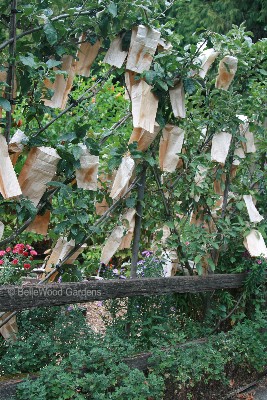
Saturday, September 20th
Urban Edibles
Glen Andresen has a standard, 60 foot by 100 foot, city lot. He took back the lawn just over 20 years ago, and now it is a superbly efficient, highly productive, organic food garden. It is astonishing what he's managed to fit in the modest space of this corner lot:Fifteen raised vegetable beds. Herbs. There's a grape arbor, a strawberry patch, and a row each of raspberries, marionberries, and blueberries. Ten bee hives. 40 no-spray fruit trees, including an attractive espalier border.

Paper bags cover the fruit on the espalier border.
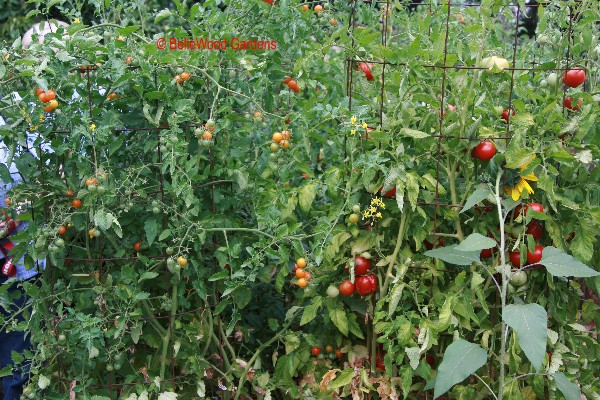
Sure, home gardeners grow a tomato plant or two, maybe more.
But look at the production on these plants. Urban Edibles, for sure.
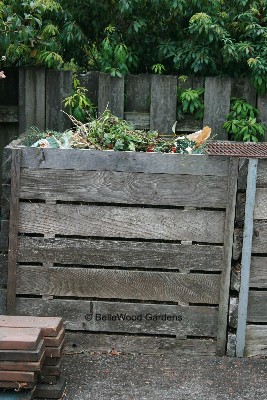
All garden prunings, clippings, litter, and leaves stay on-site, turned into compost.
Wood chips, acquired at no cost from arborists, are used as mulch, helping to keep down weeds
and maintain soil moisture. Eventually they too, will decay and yield more organic matter.
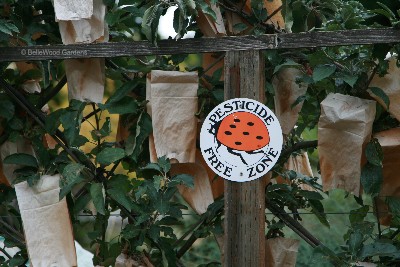
As an organic garden, pesticides and herbicides are verboten.
Insecticides would harm the honeybees, especially so in this compact system.
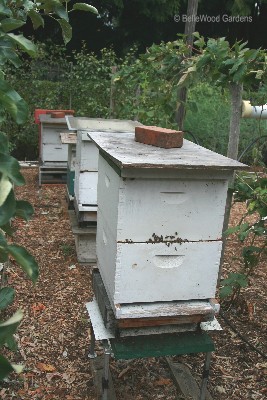
The bees were very busy while we were there, intent enough that
we were ignored, even as the curious and the photographers came closer
than was probably prudent. The bees ensure excellent pollination for the
fruits and vegetables, and each hive produces an average of 80 pounds
of honey. Glen has his own little farm stand on the front porch,
honey for sale on the honor system.
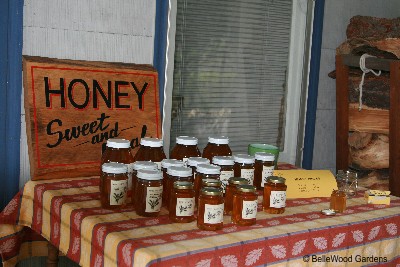
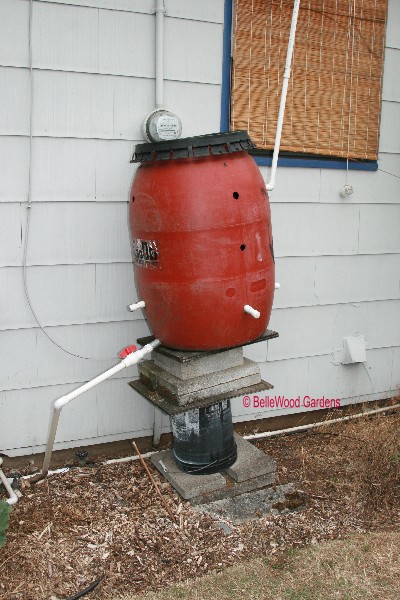
Glen has an irrigation system, utilizing rain water collected in this barrel.
It's deliberately set on a slant, to make use of every last drop. He made
the irrigation system from PVC pipes, using a drill, sewing needles,
and a valve at each raised bed. Efficient, he says, and easy to use
once it is set up each spring.
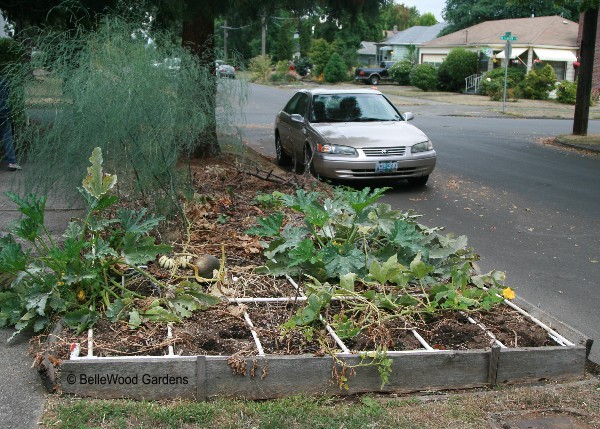
Even the hell strip between sidewalk and street is pressed into production.
It has its own water supply, that runs under the sidewalk. Squash this year,
and the feather fronds of asparagus, a permanent planting.
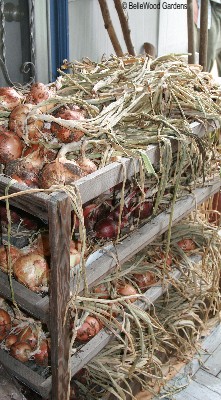
Fresh harvest all summer, the garden still yields ample produce.
Earlier crops are being prepared for lengthier storage,
like these drying onions that fill a multi-tier rack on the porch.
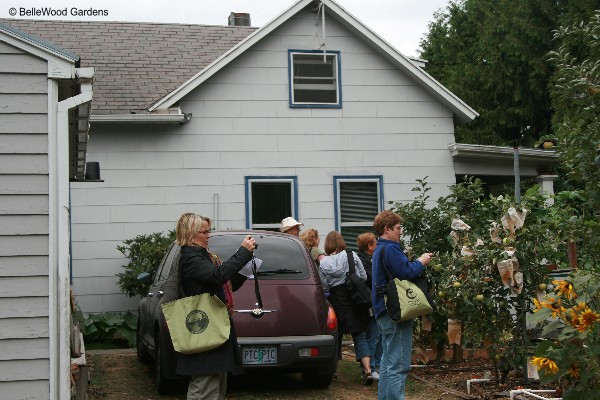
Back to Top